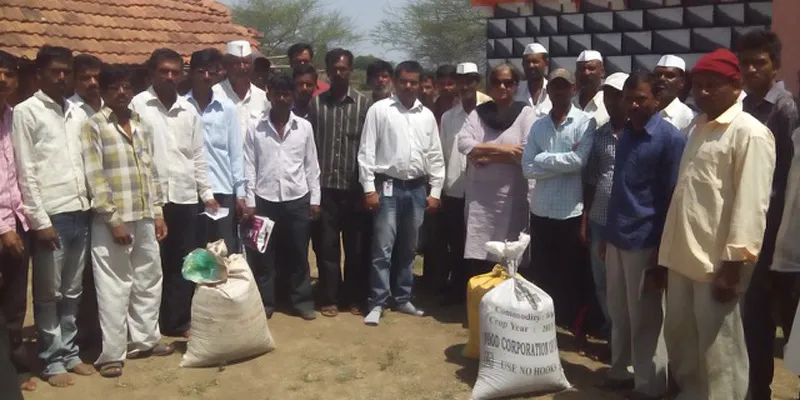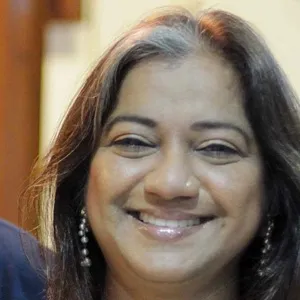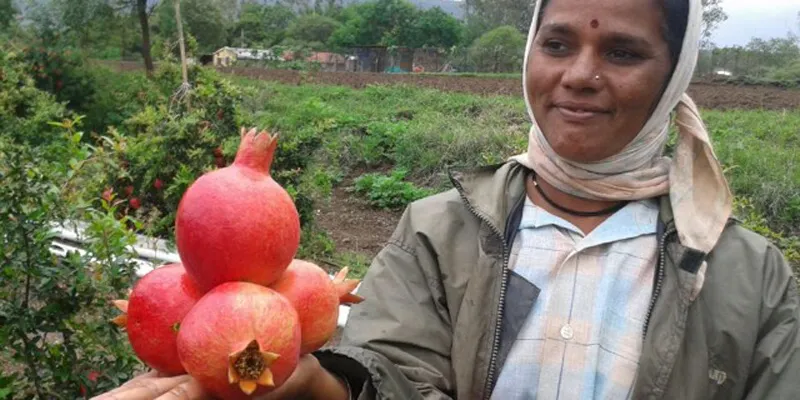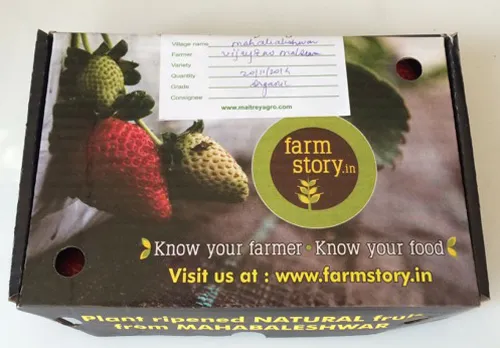Seed for thought - how this mother-daughter duo is improving the lives of 5,000 farmers
Hand-pounded rice, fresh organic strawberries – these are amongst the many items that farmstory.in - a Pune-based online store plans to deliver to your doorstep. Of the many e-companies out there bringing fresh groceries to you, this one stands apart for placing the farmer who is growing them right at the centre of its intervention. Three years ago, Kavita Mudhoot Kowshik, a social worker, who has worked on human rights issues, decided to collaborate with her daughter and set up a social enterprise that would help farmers. Kavita, who is based out of Pune, set up Maitreya Agro, in response to the agrarian crisis that is gripping farmers across the country.

‘Do you know that a peon in a city slum is given preference over a young farmer by a bride’s family? And all our food-growing lands are becoming concretised?’ It is these hard realisations about the agrarian economy in India that motivated Kavita, a TISS graduate, to set up her company Maitreya Agro and the soon-to-launch e-portal farmstory.in.

Through Maitreya Agro, Kavita and her team provide grassroot-level training to convert farmers to organic farming. They not only help them with the techniques of farming, but also help them market their produce and turn them into successful entrepreneurs. This produce will be sold through Farm Story, an online store that will bring specialty and organic foods from small and marginal farmers in India to people’s dinner tables. Some examples of the food they sell range from certified organic produce, to naturally grown ancient grains, dried fruit, nuts, and spices.
Due to her intervention, she has revived products like Black Rice, Emmer Wheat, Millet and traditional varieties of rice in states like Maharashtra, Kerala, and Assam that had long lost out to commercial varieties.
Kavita has decided to take her intervention a step further; the focus after training farmers is on linking them to the market. “Since I was already working with communities and villages, the need for Marketing Agricultural produce came up from the farmers themselves, and that's how we started Maitreya Agro three years ago”, she explains. She started working full steam directly with farmers using her personal funds as she did not want to be answerable to any funding corporates ‘who did not understand their agenda’. Her motto is simple- Health for People and Wealth to the farmers. And, for this, Maitreya supports sustainable agriculture by promoting chemical-free farming, vermi- composting, and organic manure. The benefits, she believes, will be many as better access to prosperity will improve access to education, healthcare, and sanitation, thereby improving the quality of life in the village
And to maximise her outreach, Maitreya ties up with many local organisations in states like Assam and Kerala where she has tied up with organic farming leaders and KVKs (Krushi Vigyanik Kendras).

Kavita is the proud mother of two grown-up children. Her son Karn Kowshik is an avid mountaineer, who runs his own trekking company, while her daughter Meera Jamnagarwala is an environmentalist and wildlife photographer.
Describing what it’s like to travel across the country, working with farmers, Kavita says, “When I am with the farmers, I am on ‘Love mode,’ and it is like a meditation for me. They react to me with love and acceptance and are very open and friendly, (though they are a bit in awe of me.) Yes, they are open to suggestions, because we work with them hands on, training them from day one”.
So, given that she doesn’t take money from corporates, how does she make her organisations work financially viable? Kavita is firmly against charity or dole outs. Her focus is on training farmers in responsible sustainable agricultural practices; in return, the organisation takes a small percentage from the farmers for financial viability. All this happens through a transparent process in which the farmer is fully aware of how much he gets. “We are a Social Enterprise, registered as a company and not an NGO. We will break even this financial year”, she admits proudly. Her enterprise has a unique profit sharing model – they share their marketing and running costs with the farmers, while taking into account their cost price, and then agree on a sales price. Most agricultural production does not come under MSP (Minimum Sales Price), and farmers generally have to sell below their cost price itself due to the extreme perishability of the product. That’s where their intervention helps the farmer quote a price that helps him get a fair deal. To ensure that farmers don’t become completely dependent on them, they have an exit policy when the farmers learn to directly market their produce without exploitation within five years.

Her goal is simple: “We believe that each rural family must earn at least Rs 10 lakh per annum to make all other development issues fall in place”. That’s why, for Kavita, the farmer is central to any development model that the government must pursue. As she works to activate her online business connecting farmers to the world of e-commerce, Kavita Mudhoot Kowshik may be one step closer to her vision of a society that places the farmer at the centre of all growth and development. More power to her and such seeds of thought.







